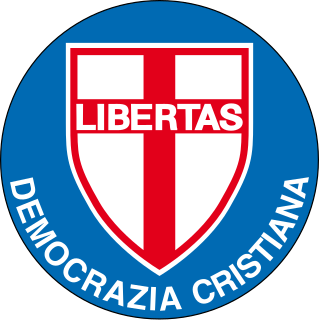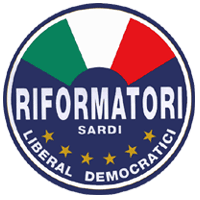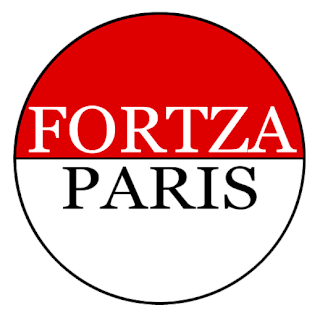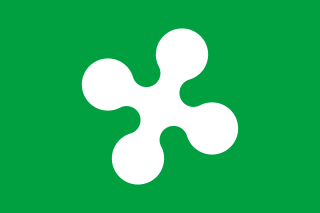
Christian Democracy was a Christian democratic political party in Italy. The DC was founded in 1943 as the ideal successor of the Italian People's Party, which had the same symbol, a crusader shield. A Catholic-inspired, centrist, catch-all party comprising both centre-right and centre-left political factions, the DC played a dominant role in the politics of Italy for fifty years, from its inception in 1944 until its final demise in 1994 amid the Tangentopoli scandals. The party was nicknamed the "White Whale" due to party's huge organization and to its official color. During its time in government, the Italian Communist Party was the largest opposition party.

The Sardinian Action Party is a Sardinian nationalist, regionalist and separatist political party in Sardinia. While being traditionally part of the Sardinian centre-left, the party has also sided with the centre-right coalition and, more recently, with Lega Nord/Lega.

The Italian Liberal Party was a liberal and conservative political party in Italy.

The Sardinian Reformers is a liberal-conservative, regionalist, Christian-democratic political party in Sardinia, led by Michele Cossa. The party, which has always been part of the centre-right at the Sardinian regional level, is a keen supporter of the free market, competition, globalization and a two-party system.

Fortza Paris is a regionalist political party in Sardinia.
The Union of Sardinians – Nationalist Project is a regionalist Christian-democratic political party in Sardinia. Its leader is Mario Floris, a former Christian Democrat who was President of the Region from 1999 to 2001.

The Segni Pact, officially called Pact of National Rebirth, was a Christian-democratic, centrist and liberal political party in Italy. The party was founded and named after Mario Segni, a former member of the Christian Democrats who was a prominent promoter of referendums.

The Slovene Union is a Christian-democratic political party in Italy representing the Slovene minority in the Friuli-Venezia Giulia region. Its Slovenian language name means literally "Slovene Community", but the denomination "Slovene Union" is used in other languages.

The Politics of Lombardy, Italy, takes place in a framework of a semi-presidential representative democracy, whereby the President of the Region is the head of government, and of a pluriform multi-party system. Legislative power is vested in the Regional Council of Lombardy, while executive power is exercised by the Regional Government led by the President, who is directly elected by the people. The current Statute, which regulates the functioning of the regional institutions, has been in force since 2008.

The Piedmontese regional election of 1980 took place on 8 June 1980.

The Sardinian regional election of 1989 took place on 11 June 1989.

The Sardinian regional election of 1984 took place on 24 June 1984.

The Sardinian regional election of 1974 took place on 16 June 1974.

The Sardinian regional election of 1961 took place on 18 June 1961.

The Sardinian regional election of 1965 took place on 13 June 1965.

The Sardinian regional election of 1969 took place on 15 June 1969.
The centre-right coalition is a political alliance of political parties in Italy, active—under several forms and names—since 1994, when Silvio Berlusconi entered politics and formed his Forza Italia party.
The centre-left coalition is an alliance of political parties in Italy active, under several forms and names, since 1995 when The Olive Tree was formed under the leadership of Romano Prodi. The centre-left coalition has ruled the country for more than thirteen years between 1996 and 2021.











